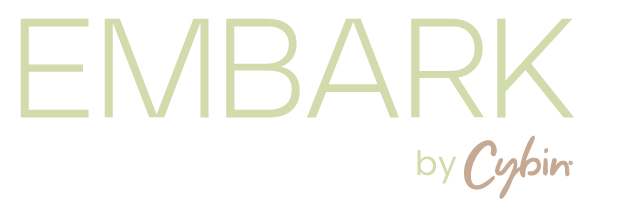Four Care Cornerstones
EMBARK is also built upon a foundational belief that
efficacious treatment is ethical treatment. As such, any EMBARK approach to a specific indication will be built upon the model’s four Cornerstones of Care:

Trauma-Informed Care
Recognizing the importance of attending to trauma in all aspects of treatment
Culturally Competent Care
Integrating a focus on cultural factors into all elements of treatment
Collective Care
EMBARK facilitators attend to the larger context of participants’ challenges through all aspects of treatment
Ethically Rigorous Care
psychedelic medicine psychological support has a greater need for therapists to use their role power ethically

Trauma-Informed
Care

Culturally
Competent Care

Ethically
Rigorous Care

Collective Care
The field of mental health has reached a consensus that the ability to provide care to those who differ from the facilitators in terms of race, ethnicity, gender, sexual orientation, age, class, ability, or other social location is crucial to delivering effective treatment. However, training facilitators to consider these factors when treating those who are culturally different has lagged behind this realization. This has been particularly true in clinical trials of psychedelic-assisted therapy, which have received much scrutiny for not recognizing the importance of cultural considerations. The EMBARK model integrates a focus on these cultural factors into all elements of its approach.
Psychedelic facilitation presents unique ethical challenges, including the potential for heightened participant suggestibility, the likelihood of stronger and more complex transference and countertransference, and the need for particular sensitivity regarding consent, specifically around boundaries and touch. These challenges present a greater risk for facilitators to be drawn into boundary transgressions, and a greater need for therapists to use their role power ethically.
EMBARK responds to this heightened potential for relational harm by interweaving ethical considerations and training into all aspects of its approach. EMBARK facilitators are supported in their own self-reflection and professional growth through ongoing supervision and participation in peer consultation groups, to normalize ethical challenges and elicit accountability within a community of practice.
The presenting symptoms and conditions that bring participants to psychedelic facilitation are rooted not only in their own personal experiences, but in cultural and historical trauma, societal inequities, discrimination, and environmental stressors. EMBARK facilitators attend to the larger context of participants’ challenges through all aspects of treatment. EMBARK training supports facilitators in attending to these factors when understanding and treating participants’ presenting challenges, and offers recommendations to facilitators on how they can broaden their role and become more holistic advocates for the participants they have committed to serve.
Cybin is committed to making psychedelic facilitation accessible to underserved and marginalized populations by partnering with multicultural clinics focused on community mental health to offer affordable and equitable care and adapt treatment protocols to meet the unique needs of diverse communities.
